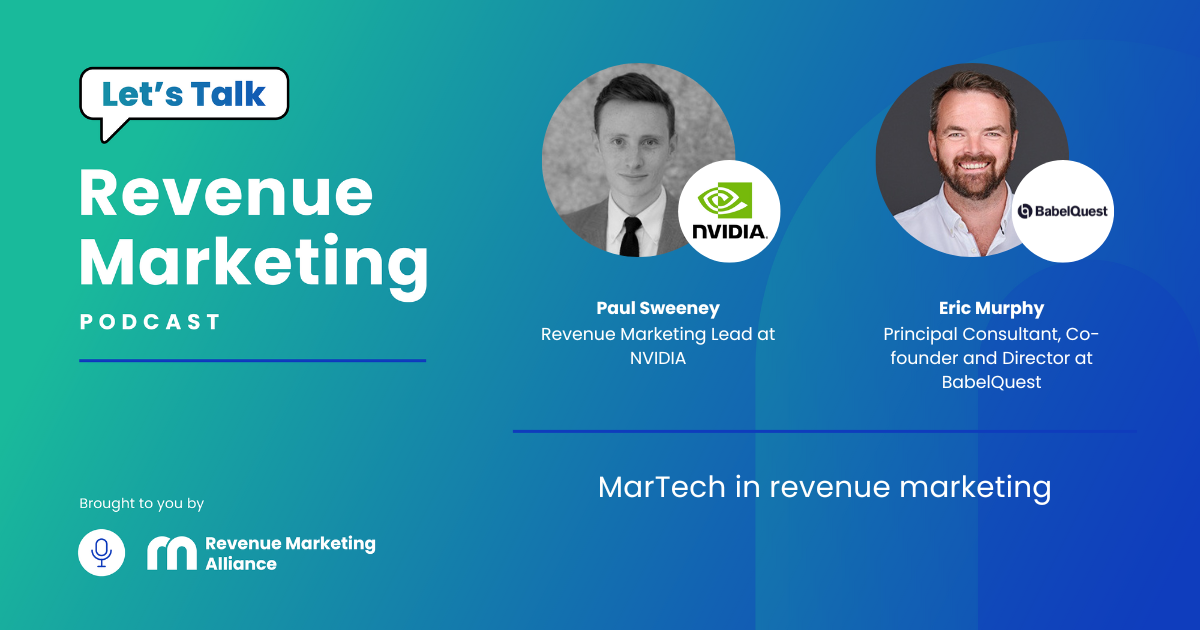Throughout much of marketing history, creating and executing plans required significant time and manual effort. This included extensive personal interactions, brainstorming, and team planning, resulting in relatively slow revenue buildup.
Although successful marketing still demands time and effort, recent years have seen a shift in the balance of tasks. The introduction of various new tools has automated different aspects of the field, streamlining processes for those involved. These tools have emerged as a significant game-changer for companies, transforming their revenue generation strategies.
Currently, marketing technology and revenue technology play pivotal roles in the business plans of companies. They have fundamentally reshaped each phase of the marketing process, liberating professionals from the manual tasks that were once integral to the field.
This article will delve into these concepts, examining their implications for the business landscape and their overarching impact on revenue generation.
Some quick links:
- Understanding marketing technology
- The importance of marketing technology in the modern business landscape
- Final thoughts

Understanding marketing technology
Marketing technology, often abbreviated as MarTech, encompasses the array of tools and techniques designed to automate and enhance the marketing process. Today, numerous manual aspects of marketing can be automated, providing marketing teams with significant time savings and allowing them to concentrate on strategic planning.
By leveraging marketing technology, companies can streamline specific facets of their operations, leading to accelerated revenue growth due to a deeper understanding of the drivers behind their business.
In order to effectively develop and utilize marketing technology, it is important to have an understanding of marketing psychology. Marketing psychology delves into unraveling the motivations behind consumers' thought processes and behaviors.
While initially established as a discipline in the mid-20th century, it has recently advanced into a refined science, becoming a valuable tool for marketers to shape and guide their strategic approaches.
There are distinct principles involved in marketing psychology that can help you shape your marketing campaigns. These include preparing customers to respond to specific kinds of stimuli, encouraging people to respond to items that are scarce, stimulating people to seek greater knowledge about a product or service, and other psychological techniques that help promote particular marketing tactics.
Need a dynamite CRM, an awesome data analysis tool, or just about any kind of revenue-boosting marketing tool?
Download your copy of the Tools of Choice report today to build a martech stack that crushes the competition. 👇

The importance of marketing technology in the modern business landscape
Marketing technology is an essential component of succeeding in the modern business landscape. These days, the demand for accurate, specific and targeted information is high, and many businesses are coming to utilize similar techniques.
In the following sections, we will look at specific aspects of marketing and how each of them has been impacted by the use of marketing technology.
Enhancing customer engagement
One of the reasons that marketing technology tools are so popular is that they play a major role in enhancing customer engagement. Marketing technology assists companies in the personalization of marketing schemes.
Thanks to advanced software, teams are able to store and recall customer histories and preferences with ease, and they can use this information to hone personalized messages and other forms of communication with customers.
This increased personalization has proven to be a major factor in customer retention, as people respond much more positively when they feel that their personal needs are being addressed.
In particular, customer relationship management (CRM) systems are now widespread among many businesses, and they have grown far more sophisticated in recent years. CRMs not only store large amounts of customer data but they can be used to create targeted email and other types of marketing campaigns using detailed customer information.
Also, in analyzing data collected through CRMs, companies gain much more detailed insight into customer behavior. This helps marketers shape their future strategies with greater precision.
Data analytics and decision making
Another crucial aspect of marketing technology is data analytics, and data-driven marketing in particular. Data-driven marketing refers to marketing that is based on the analysis of large amounts of data in order to determine larger trends and make predictions.
One of the tools that marketers use in data-driven marketing is predictive analytics. Predictive analytics is a tool that helps marketers gain a deeper understanding of customer preferences and more accurately predict how customers will respond to different types of messages, what platforms they tend to use, and other aspects of their behavior that should be included in marketing campaigns.
Through the use of data-driven marketing and predictive analytics, companies are better able to measure ROI. In using these techniques, you can develop key metrics to measure the effectiveness of your marketing campaigns.
Through the use of metrics like conversion rates, customer acquisition costs, lifetime value, and customer engagement, you can assess the success rates of your campaigns and plan your future strategies accordingly.
Optimizing sales funnels
The use of marketing technology assists teams in optimizing sales funnels. A sales funnel, otherwise known as a purchasing funnel, is a theoretical model of the whole customer journey from the beginning to the end of a purchasing process.
Marketing technology applies to different aspects of the sales process. For one thing, creating more specific, accurate analyses about customer behavior helps marketers with lead generation. Lead generation is the biggest driver of ROI and the tools that marketing technology offers allow teams to generate leads at previously unprecedented levels.
In using analytical tools to measure the results of marketing efforts, teams are able to create more accurate leads. Consequently, they are able to target these leads through the process of lead scoring.
Lead scoring is a method by which marketers learn how much different prospects know about their brand, how ready they are to make purchases, and generally how strong of a prospect each lead is to the company. In this way, marketers are able to better focus their efforts on the strongest leads possible and optimize their marketing campaigns.
In creating and utilizing stronger marketing campaigns, companies ultimately attain greater customer retention rates. When customers feel that their needs are being met, they are much more likely to remain loyal to particular companies. And this means increased revenue.

Final thoughts
The integration of marketing technology into business planning has become crucial for boosting revenue. These tools allow companies to fine-tune strategies, target their customer bases more accurately, and ultimately enhance revenue through robust marketing campaigns.
As technology continues to advance, these tools are becoming more refined. The growing sophistication of AI and other analytical techniques provides marketers with deeper insights into customer behavior, making campaigns even more productive.
Some experts suggest that AI and modern tools can sometimes predict customer behavior better than the customers themselves realize. These advancements are poised to significantly impact businesses, fostering growth and revenue building.



